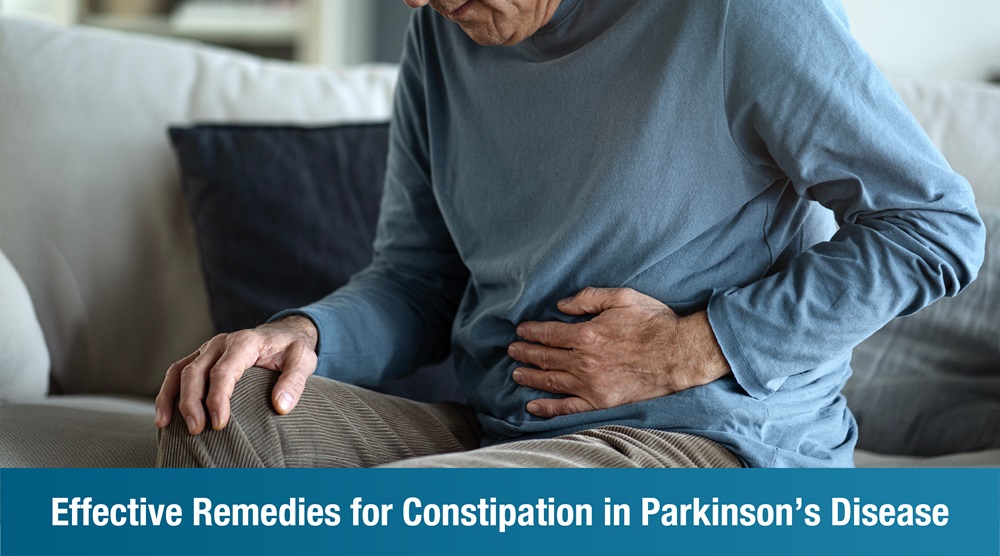
Living with Parkinson’s Disease can be challenging due to its impact on voluntary movement and mental health. Additionally, constipation is a common complication of Parkinson’s Disease and can be frustrating to manage regularly. Fortunately, constipation in Parkinson’s Disease can be effectively treated with the right approach. Here, we provide a brief guide to understanding constipation in Parkinson’s Disease patients and offer tips on the best remedies for managing this condition.
What is Parkinson’s Disease
Parkinson’s Disease is one of the most prevalent neurodegenerative conditions globally. It primarily affects dopamine-producing neurons in the substantia nigra, a specific area of the brain. Dopamine is crucial for transmitting messages to brain regions that control coordination and movement. Consequently, low dopamine levels impair movement. While the exact cause of Parkinson’s Disease is unknown, it is often linked to a combination of genetic and environmental factors. Although there is no cure for Parkinson’s Disease, treatments such as Physiotherapy, Occupational Therapy, Speech Therapy, and Cell Therapy can slow disease progression and manage symptoms.
Constipation in Parkinson’s Disease
Constipation in Parkinson’s Disease is a frequent symptom, occurring when bowel movements become less frequent or difficult to complete. It is often one of the earliest signs of Parkinson’s Disease, appearing even before muscle tremors or stiffness.
Symptoms of constipation in Parkinson’s Disease include:
- Moving bowels fewer than three times a week
- Straining during bowel movements
- Experiencing dry, hard stools
- Feeling of incomplete bowel evacuation
While occasional constipation can be manageable, chronic constipation in Parkinson’s Disease significantly affects the quality of life.
Causes of Constipation in Parkinson’s Disease
Constipation in Parkinson’s Disease often results from dysfunction in the autonomic nervous system due to reduced dopamine levels. The autonomic nervous system controls involuntary muscle activities, including those in the circulatory and digestive systems. Disruptions in this system can affect intestinal food movement, leading to constipation.
Additionally, several Parkinson’s Disease medications can decrease appetite or slow bowel movements. Difficulty chewing or swallowing can also cause patients to avoid fibrous foods, increasing constipation risk. Other factors contributing to constipation in Parkinson’s Disease include:
- Insufficient water intake
- Excessive dairy consumption
- Lack of exercise
- Ignoring the urge to move bowels
- Stress
- Changes in routine, such as travel
- Conditions like irritable bowel syndrome or colorectal cancer
Diet for Parkinson’s Related Constipation
A proper diet plays a crucial role in managing constipation in Parkinson’s Disease. Here are some dietary recommendations to alleviate constipation:
- Drink 1.5 to 2 quarts of water and other fluids daily to keep the digestive system hydrated.
- Start your day with warm liquids to stimulate bowel movements.
- Incorporate high-fiber foods such as legumes, whole grains, fruits, and vegetables into your diet.
- Include chia seeds, bran, and flaxseeds in your meals to promote digestion.
- Homemade vegetable soups are nutritious and easy to digest.
- Eat smaller, frequent meals throughout the day to keep the digestive system active.
- Reduce intake of tea, coffee, and alcohol as they can dehydrate the body and exacerbate constipation.
It is crucial to introduce dietary fiber gradually to avoid abdominal cramps and bloating. Patients should consult a doctor immediately if they experience:
- Blood in the stools
- Pain during bowel movements
- Constipation lasting more than three weeks
- Unintentional weight loss
- New onset of constipation
How to Treat Constipation in Parkinson’s Disease
Treating constipation in Parkinson’s Disease is essential to alleviate discomfort and prevent complications like bowel incontinence or urinary tract infections. This typically involves dietary adjustments and moderate exercise to promote digestion. Effective remedies for managing constipation in Parkinson’s include:
- Moving bowels whenever the urge arises
- Taking enough time for bowel movements without rushing
- Exercising regularly
- Using mild laxatives as prescribed
- Getting an enema for severe constipation, if recommended
- Applying a warm washcloth to the abdomen or gently massaging it to relax gut muscles
Managing constipation in Parkinson’s Disease requires a comprehensive approach involving lifestyle changes, dietary adjustments, and regular medical consultation to ensure the best possible outcomes for patients. You can reach out to Team Plexus for a holistic nutrition program, part of our rehabilitation for Parkinson’s, to manage constipation.
WhatsApp +91 89048 42087
Call +91 78159 64668 (Hyderabad) | +91 82299 99888 (Bangalore)
FAQs
What is the best laxative for Parkinson’s disease?
For Parkinson’s Disease, a doctor may recommend osmotic laxatives like polyethylene glycol (MiraLAX) to ease constipation.
What stage of Parkinson’s is constipation?
Constipation can occur in early stages, even before motor symptoms appear.
What organs are affected by Parkinson’s disease?
Parkinson’s affects the brain, particularly dopamine-producing neurons, and can impact the autonomic nervous system, affecting various organs.
What is the best fiber supplement for Parkinson’s disease?
Psyllium husk (Metamucil) is often recommended for its effectiveness in alleviating constipation.
Do Parkinson’s patients lose control of their bowels?
Some Parkinson’s patients may experience loss of bowel control, particularly in advanced stages of the disease.










